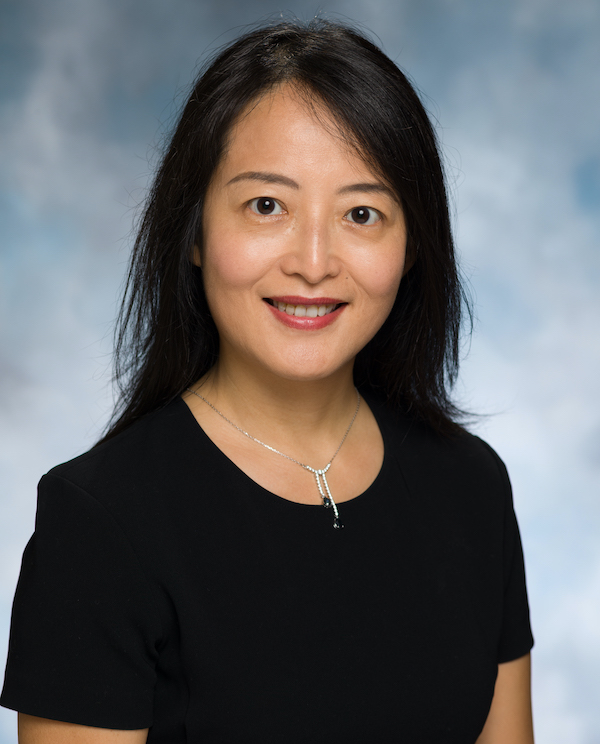New Brunswick, N.J. April 11, 2020 – Autophagy is a process where a cell eats itself to maintain cellular metabolism during metabolic stress. Researchers from Rutgers Cancer Institute of New Jersey have previously investigated the role autophagy in the development of lung cancers driven by mutations in tumor suppressors known as LKB1 and oncogene KRAS with the goal of exploring new therapeutic approaches to treating non-small cell lung cancer, a sub-type of lung cancer that is active of KRAS and deficient of the LKB1 gene.
Recently, researchers further explored this approach by examining autophagy with the use of a cancer drug which works as an inhibitor to mitogen-activated protein kinase enzymes. Results of the study will be shared at the virtual American Association for Cancer Research (AACR) meeting. ‘Jessie’ Yanxiang Guo, PhD, researcher at Rutgers Cancer Institute is senior author and shares more about the work:
Q: Why is this work important to explore?
Lung cancer is the leading cancer killer worldwide, with non-small cell lung cancer (NSCLC) accounting for more than 85 percent of these cases. LKB1 and KRAS are the third most frequent co-mutations detected in NSCLC, causing aggressive tumor growth, metastases and resistance to standard chemotherapy, targeted therapy as well as immunotherapy. Thus, identifying a novel treatment for patients harboring co-mutations in LKB1 and KRAS is urgently needed.
We have previously demonstrated that LKB1-deficient lung cancers are especially autophagy addicted in genetically engineered mouse models for LKB1-mutant KRAS-driven NSCLC, suggesting that inactivation of bioenergetic checkpoints in cancer is one way to cause autophagy addiction. Therefore, it is necessary to further explore the translational possibility of autophagy inhibition in the treatment of LKB1 mutant lung cancers.
Q: Tell us about the work and what you and your colleagues found?
Chloroquine and its derivative hydroxychloroquine (HCQ) are FDA-approved autophagy inhibitors. Trametinib, a selective inhibitor of the MEK1 kinase, has been used to treat NSCLC with RAS mutations as a targeted therapy to block the RAS downstream effector pathways. In our current work, we found that LKB1 mutant KRAS-driven lung cancer cells were much more sensitive to autophagy inhibitor HCQ-induced cell death compared to LKB1 wild type KRAS-driven lung cancer cells. We further found that a combination treatment of HCQ with trametinib showed synergistic anti-proliferative effects in LKB1 mutant KRAS-driven lung cancer cells, but not LKB1 wild type KRAS-driven lung cancer cells. We finally validated our in vitro observations using preclinical mouse models. We confirmed anti-tumor synergistic effects of the combination of HCQ with trametinib in LKB1-mutant KRAS-driven lung tumors, with no such effect in LKB1 wild type lung tumors. Subsequently, we elucidated the underlying mechanism of increased sensitivity of LKB1-mutant KRAS-driven lung tumors to trametinib when autophagy was abolished by HCQ. We found that mitochondrial metabolism, an energy hub, was significantly disrupted by the combination of HCQ and trametinib compared to the treatment of trametinib alone, leading to ferroptosis, a type of cell death.
Q: What are the implications of these findings?
Our findings suggest that a combination of autophagy and MEK inhibition could be a novel therapeutic strategy to specifically treat LKB1-deficient NSCLC. Moreover, LKB1 mutation could be explored as a biomarker for such combination treatment. This needs to be further investigated in clinical trial.
Additional details can be found here.
###
For journalists – contact:
Krista Didzbalis
Media Relations Assistant
908-812-6114
krista.didzbalis@rutgers.edu
For patient appointments/inquiries – contact:
844-CANCERNJ (844-226-2376)


